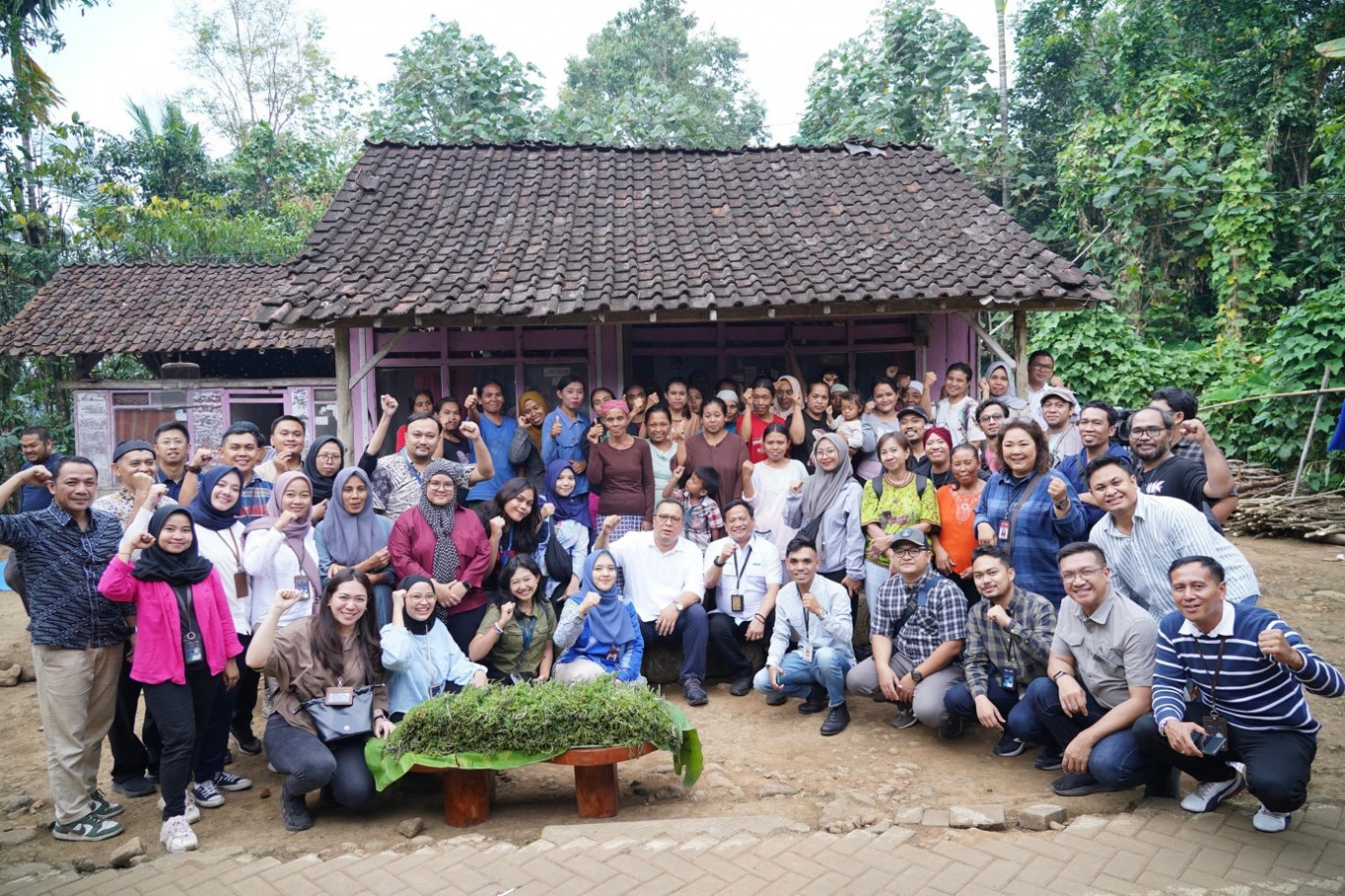Popular Reads
Top Results
Can't find what you're looking for?
View all search resultsPopular Reads
Top Results
Can't find what you're looking for?
View all search resultsPNM takes journalists on a tour to witness extreme poverty in Banyuwangi
Change text size
Gift Premium Articles
to Anyone
T
he eradication of poverty has been a key concern for the government and the United Nations, in relation to the first Sustainable Development Goal (SDG) focused on achieving zero poverty.
Arif Budimanta, special staff to the President for economic affairs, has outlined the government's strategies to reduce extreme poverty to zero. These strategies include reducing household expenses, increasing income through empowerment programs and improving impoverished areas and environments, all of which support this strategic initiative.
"Indonesia must not only grow but grow inclusively, which includes efforts to eradicate both extreme and general poverty," said Arif during the Media Discussion on the Eradication of Extreme Poverty in Banyuwangi, part of PT Permodalan Nasional Madani’s (PNM) Journalist Journey 2024.
One key player entrusted with increasing income levels is PNM. Through its PNM Mekaar (Fostering a Prosperous Family Economy) program, women from underprivileged backgrounds are provided with financing and business assistance to help them become self-sufficient and escape poverty, including extreme poverty.
PNM invited journalists to witness firsthand the face of extreme poverty in Banyuwangi, East Java. Currently, the extreme poverty rate in Banyuwangi stands at 0.29 percent, compared with 0.66 percent in East Java province and 0.83 percent nationally.
Journalists had the opportunity to interact with Mbah Marinah, a 103-year-old beneficiary of the Rantang Kasih program, which provides nutritious daily meals to the elderly. Mbah Marinah, along with a local micro, small and medium enterprise (MSME) owner who supplies the meals, represents the program's efforts to support vulnerable communities.
[gal:1]
The visit also included a meeting with PNM Mekaar client, Ibu Sa’adi. Formerly a broomstick gatherer in the forest, Ibu Sa’adi, who resides in Telemungsari, Kalipuro, Banyuwangi, used to struggle to provide for her children and grandchildren. After connecting with PNM Mekaar, she secured a loan to purchase and sell fern vegetables, gradually growing her business with the help of family members. Today, her business helps support her family, including funding her grandchildren's education.
PNM president director Arief Mulyadi expressed hope that PNM Mekaar’s financial, intellectual and social capital support would provide a pathway for subsistence groups to improve their quality of life. Group-based financing is believed to foster social re-engineering, encouraging group members to support each other's business growth.
"Those who progress must stay within this ecosystem. Ideally, the larger businesses will help the smaller ones grow," Arief added. The group system, reflecting Indonesia’s spirit of mutual cooperation, is crucial for PNM Mekaar clients to maintain unity and solidarity.
Since its launch in 2015, PNM has provided support to more than 20 million women across Indonesia. Following its integration into the ultra micro holding, its financial inclusion services have become even more diverse.
"So far, 1.7 million PNM clients have graduated to larger financial institutions like BRI or Pegadaian. We have also helped 400,000 group leaders [PNM Mekaar clients] become BRILink Mekaar agents to increase their income," he added.
Arif Budimanta also praised PNM Mekaar’s empowerment program and the efforts of its clients to lift themselves out of poverty. He noted that the diversity within the groups fosters learning and collective growth.
"Since these groups are diverse, with members ranging from those in extreme poverty to the middle class, there’s a learning process. Those who are already experienced in running businesses, including the more educated, help uplift other members of the group," Arif explained.










